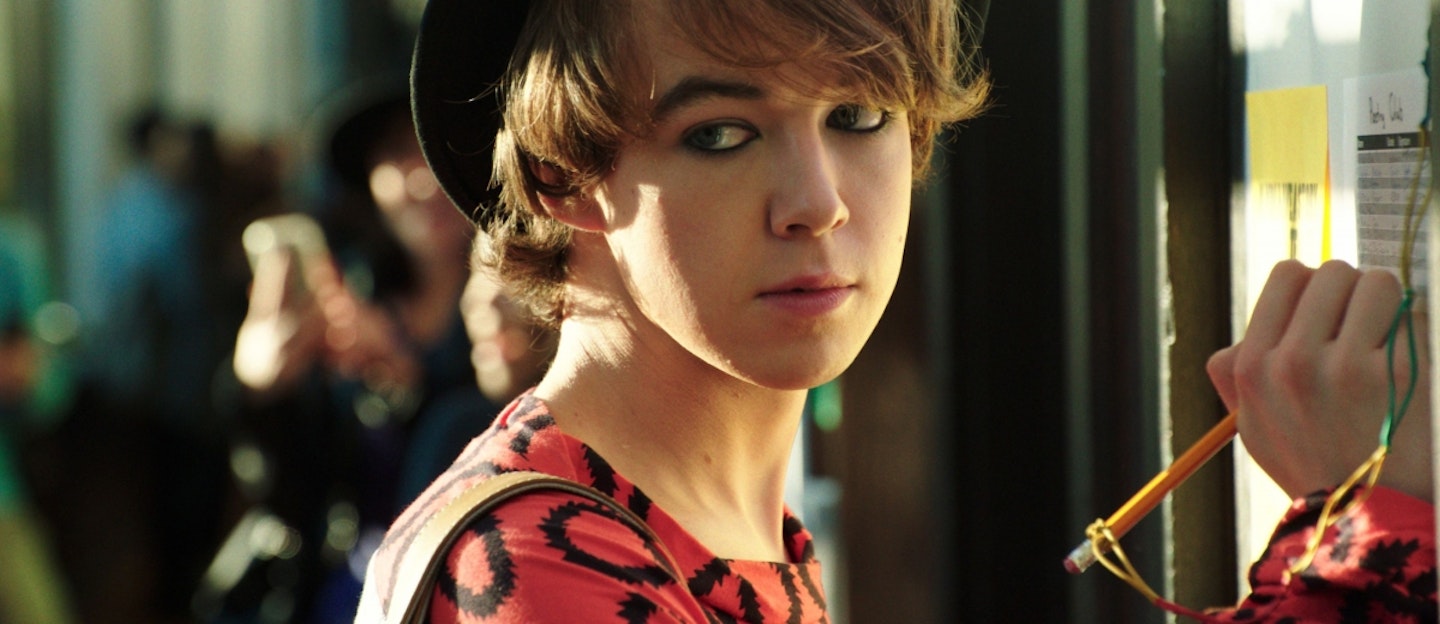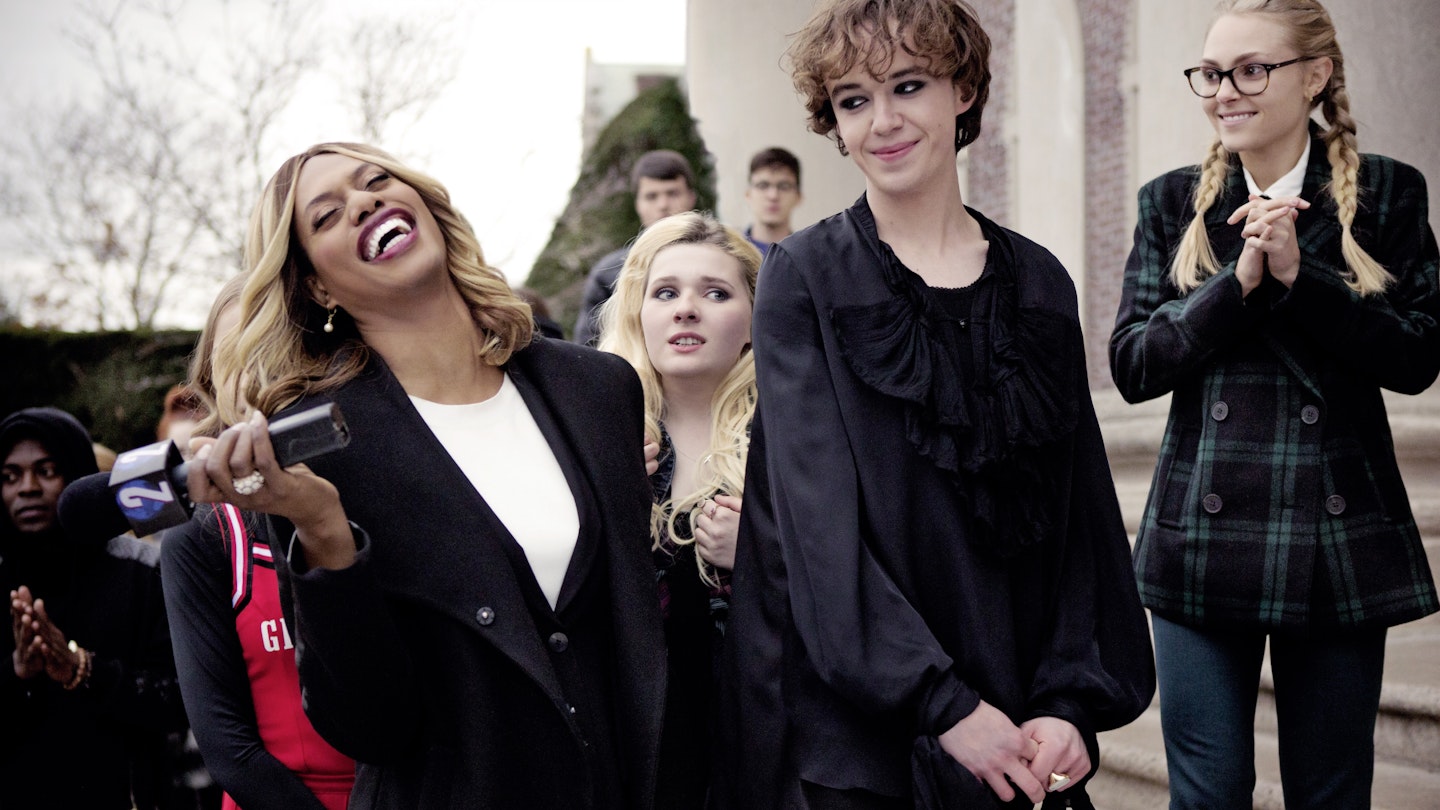Alex Lawther has carved out quite a career in quite a short time playing disenfranchised or unhappy young men, whether as the young Alan Turing in The Imitation Game, the older Christopher Robin in Goodbye Christopher Robin or the homicidal James in The End Of The F*ing World. That trend continues in this slightly more upbeat story from Trudie Styler about a steely willed, genderqueer individual — or, in his own word, “freak” — who faces bullying and responds with flamboyant courage and style.

From the outside, Lawther’s Billy Bloom would appear blessed, the son of a wealthy and powerful father (Pine) and an outrageous, glamorous mother (Midler). But the family is fractured: Billy is estranged from his father and, now he’s forced to live with him in his mother’s absence, feels isolated. School only makes it worse: his classmates are shocked by his flamboyant dress and make-up and he is taunted, bullied and finally beaten so severely he almost dies. During his convalescence, Billy befriends football star Flip (Nelson) — on whom he has a searing crush — and eventually runs for Homecoming Queen to cement his return to class and celebrate his right to exist.
Billy’s story has power and could be a comfort to those fighting their own battles against bullying.
It’s based on a 2007 book by James St. James, so sometimes it feels out of step with the modern world: kids like Billy may not be common or accepted in “red-state” schools now, but neither are they quite as wildly unfamiliar to the average teen as seems to be the case here. Many gay or gender non-conforming high school students have pioneered a run for Prom King or Queen across America, and more than a few have won. That’s not to belittle Billy’s struggle for acceptance, but given that this sometimes plays like a 1980s movie in its fashion and musical choices, director Trudie Styler might have done better to step back a decade or two rather than indirectly tar the generally more open-minded teens of today with a previous generation’s brush.
That all said, Billy’s story still has power and could still be a comfort to those fighting their own battles against bullying, and there’s real inspiration in his refusal to be anyone other than who he is. He’s a hell of a dresser and make-up artist, with one mermaid number of his own creation that’s an absolute show-stopper. If some of the film’s relationships get lost in the mix, his friendship with the very straight Flip is nicely drawn, and if their feelings for one another sometimes seems slightly muddled, well, so is adolescence. Between this and April’s Love Simon, it’s been an encouraging spring for charming, mainstream stories about LGBTQ+ teens. There’s hope for the struggle towards equality yet.
